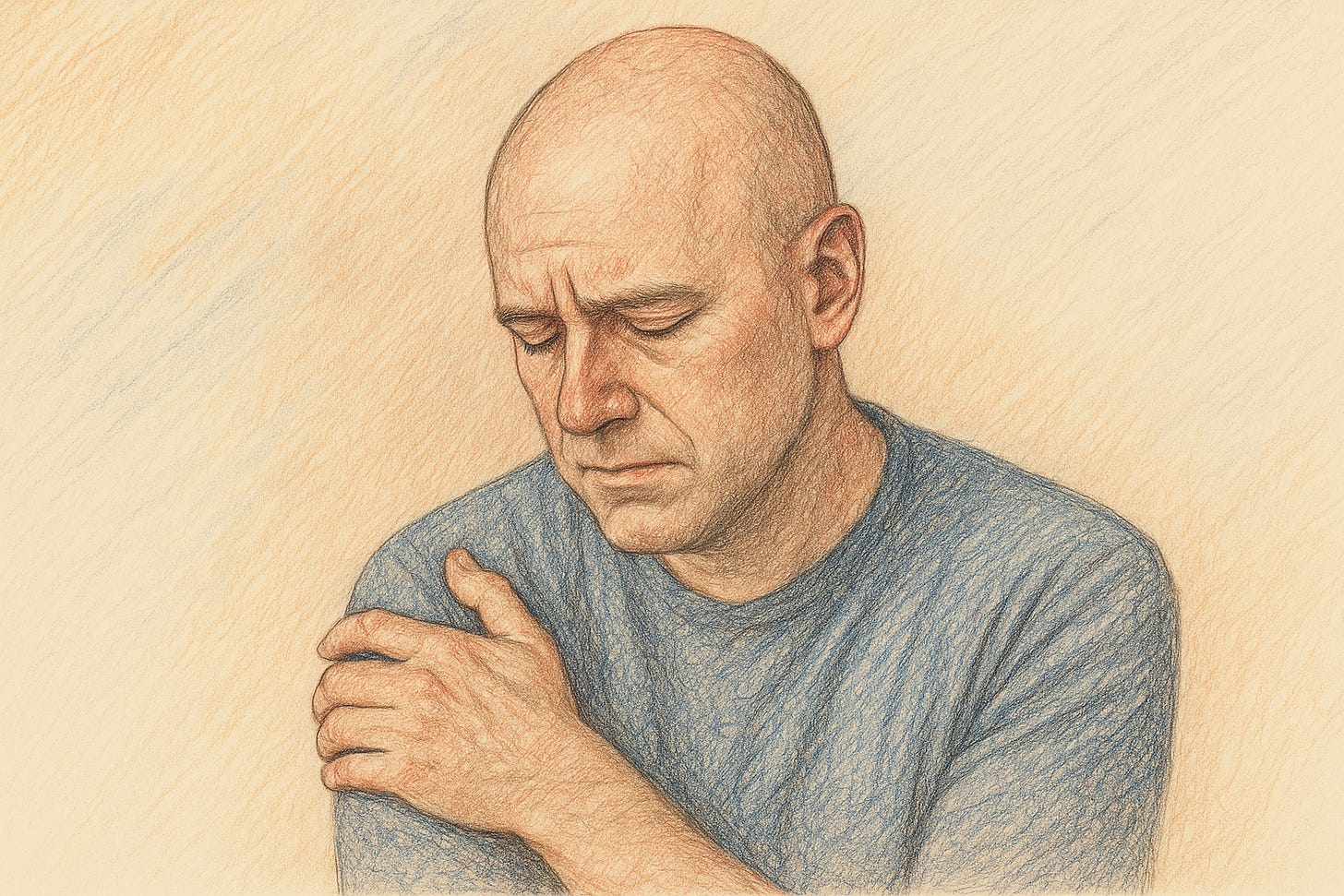Why Empathy Might Be the Strongest Move You’ll Ever Make
When I was a kid, I was told I didn’t have empathy. Decades later, I’ve realized empathy might be my strongest muscle.
Empathy as Quiet Defiance
I remember sitting in a room once where two people were on opposite sides of an issue. One was red-faced, veins showing, shouting as though volume could win the argument. The other stayed quiet. She leaned in, asked one question, and really listened to the answer.
Guess who actually moved the conversation forward?
That’s empathy. It doesn’t shout. It doesn’t grandstand. It leans in. In a culture addicted to outrage, empathy is rebellion. It refuses to dehumanize. It whispers, “I see you, even if I don’t agree with you.” That’s not softness—that’s courage.
The Hard Work of Listening
People think empathy is just “being nice.” It’s not. It’s work.
Listening when your jaw is tight and your chest is burning—that’s work. Sitting in the discomfort of someone else’s pain without trying to fix it—that’s work. Empathy is discipline.
It’s like training a muscle. You don’t get stronger by lifting once. You show up again and again, pushing through the urge to drop the weight. Over time, you find you can carry more than you thought possible.
The Myth That Neurodivergent People Lack Empathy
Now, let me speak for my community.
Autistic and ADHD folks get told all the time we “lack empathy.” That label sticks like gum on a shoe. Teachers, doctors, even family repeat it until people believe it’s true.
But here’s the irony: many of us feel empathy so intensely it overwhelms us. A shift in tone, a flicker in someone’s eyes, the tension in a room—we catch it all. And sometimes it’s too much. We shut down, we look away, or we crack a joke just to breathe. People mistake that for indifference.
It’s the same dismissal we see in politics. If you don’t express empathy in the “approved” way, people say it doesn’t count. But empathy wears many faces. Sometimes it’s quiet presence. Sometimes it’s noticing what no one else notices. Sometimes it’s writing words that help someone feel less alone.
When we call empathy an art, we make space for all those forms.
Empathy in Action
It doesn’t take grand gestures. It looks like this:
Hearing someone out instead of reducing them to a label.
Recognizing that sensory overload isn’t drama, it’s reality.
Choosing connection over scoring points in an argument.
Small choices, repeated, ripple outward. Families get steadier. Communities get stronger. Leaders start serving instead of performing.
The Bottom Line
Empathy isn’t weakness. It’s strength wrapped in humanity.
For neurodivergent people, reclaiming empathy is also reclaiming our dignity. For all of us, practicing empathy is how we keep from dissolving into tribes that only shout across the wall.
If anger builds walls, empathy plants gardens. And gardens—messy, alive, imperfect—are where we actually grow.
If this resonated, share it with someone who thinks empathy is weakness.
Thanks for being you,
Brian



